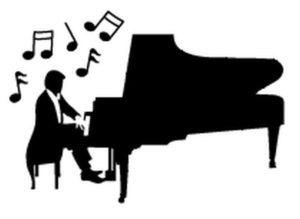Like most music students, I’ve heard a lot about the intent of the composer, and early in my studies, wondered, “Why is it so important that the performer preserves a composer’s intent?”
Surely, given the varied personalities, talents, and viewpoints among musicians, music would be much more interesting if everyone played music differently.
Intent is a two-way street.
Now that I’ve been playing, listening, and studying for a longer time, I’ve come  to understand that the contributions of both the composer and the artist should be respected. The composer produced the artistry and creativity. The artist interprets and brings the original intent to the audience.
to understand that the contributions of both the composer and the artist should be respected. The composer produced the artistry and creativity. The artist interprets and brings the original intent to the audience.
As performers, we want to insert a bit of ourselves into every piece we play, but never to the extent that the only preserved aspect, the only thing the listener hears, are the notes themselves. The composer has added personal feelings, beliefs, experiences, joys and sorrows, into the composition and these are often what allow the audience to share the true experience of the music.
The composer creates, the artist translates.
Great music is a strong, evocative presence with the ability to touch a primal emotion within all of us. Played by an artist who understands (and can properly translate) the composer’s intent, the piece resonates with the listener. A performer who alters the music, or ignores the intent, runs the risk of losing its power to communicate to an audience.
Samuil Feinberg addresses the performer/composer issue in “The Composer and the Performer” by saying, “A musician-interpreter, at one and the same time, realizes his connection to the composer’s intentions, and realizes himself as an artistic personality: acknowledging both the enormous importance of the author of the composition – and at the same time his own role in the realization of the composer’s ideas.”
Preserving the work and playing it in a way that makes it relevant to the audience – regardless of the years or centuries between composer and performer – is a special way to pay tribute to the both composer and audience.